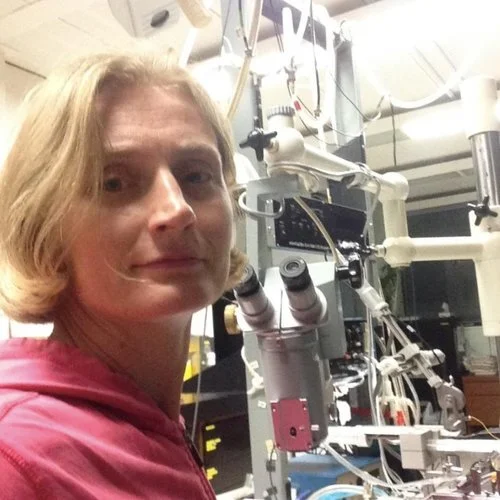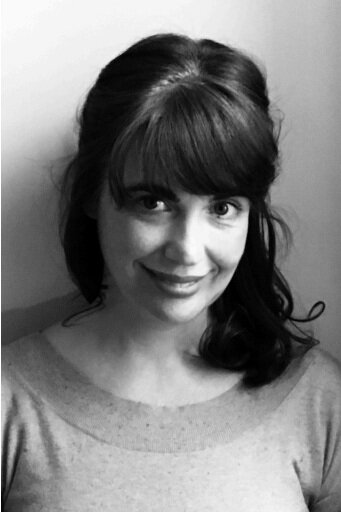
2019 Professional Panel
& Keynote Speaker
Professional Panel
Dr. Sari Hannila
Associate Professor
Department of Human Biology and Cell Sciences
A native of Sudbury, Ontario, Dr. Hannila received her Bachelor of Science degree in Life Sciences from Queen’s University in 1999. She then completed her PhD in the Department of Anatomy and Cell Biology at Queen’s under the supervision of Dr. Michael Kawaja. Prior to joining the University of Manitoba, Dr. Hannila worked as a postdoctoral fellow in the laboratory of Dr. Marie T. Filbin at Hunter College in New York City. She is currently an Associate Professor in the Department of Human Anatomy and Cell Science at the University of Manitoba and an Associate Member of the Spinal Cord Research Centre. She also serves as the Director of Outreach for the Manitoba Neuroscience Network and was nominated for CBC Manitoba’s Future 40 in 2017 in recognition of her outreach work. Her research focuses on the neurobiology of axonal development and regeneration in the central nervous system, with the goal of developing new treatments for spinal cord injury. Her work has been published in journals such as The Neuroscientist, Experimental Neurology, the Journal of Biological Chemistry, and the Journal of Neuroscience. Her research has been funded by the Canadian Paraplegic Association, the Wings for Life Spinal Cord Research Foundation (Austria), and the Natural Sciences and Engineering Research Council of Canada.
Dr. Shaikh Mohammed Iqbal
MBBS, FRCPCH, Paediatrician
I received my basic medical training in India (1987-1993) and subsequently trained in Paediatrics and Paediatric Respiratory Medicine in the UK (1995-2006). I did a 2-year fellowship in Paediatric Respiratory & Sleep Medicine at Mater Children's Hospital, Brisbane (Jan 2007 – Jan 2009). I was a consultant in Paediatric Respiratory/Sleep Medicine at Starship Children's Hospital, Auckland, New Zealand (Mar- Dec 2009) before joining as a Assistant Professor & Consultant in Pediatric Respirology & Sleep Medicine at King Saud University (King Khalid University Hospital), Riyadh, Saudi Arabia in Feb 2010. After 6 years, I moved to Winnipeg In Feb 2016 and I have been an Assistant Professor in Pediatrics at Max Rady College of Medicine, Rady Faculty of Health Sciences, and University of Manitoba. I am the Chair of Pediatric Standards Committee and also the Program Director for Pediatric Respirology.
We offer outpatient and inpatient diagnostic services and tertiary care to children with complex respiratory and sleep disordered breathing. I have a keen interest in teaching and have been involved in teaching undergraduate and postgraduate medical students previously and continue to do so in my current post. Imparting education to the public is also of utmost importance in making them partners in managing their health. I am a keen supporter of public health education and awareness and with my involvement in the pediatric associations I have been trying to promote this. My main areas of interests of research have been aerosolized drug delivery and medication compliance. Over the last few years, I have developed interest in sleep disordered breathing in a variety of conditions especially neuromuscular diseases.
Dr. Katinka Stecina
Researcher and Assistant Professor
Department of Pathology and Pathophysiology
I am a tall girl who was born in Hungary and never seen or heard of basketball as a sport until being in 7th grade. Then a year later, when I was 14 years old, I got the opportunity to train with a professional team at the price that I had to leave my family behind and move and live “on my own”. When I was 18 years, I was given the chance of moving away to the USA for playing college basketball in North Carolina on a scholarship. In those years, the “Iron curtain” just opened for Hungarians and travelling as far as I have was a brand new experience for all. It was during my university, when I learned what neuroscience was and what research could add to our society. My science teachers at the University encouraged me to pursue more education in neuroscience and inspired me to become a researcher. I went on to grad school in Canada and completed a PhD degree and then I did postdoctoral training in Sweden and Denmark before attaining my current job at U Manitoba. Over the years, I realized that being a researcher is just as much hard work and persistence as the sport was in my life. But, my daily work as a researcher today, makes every day a great, challenging adventure and it is so interesting and diverse that I encourage all students who like sports and adventures to explore research as a future career.
Ms. Rose Neufeld
Nurse
My career in health care spans 40 years, including direct service as a nurse in intensive care, primary care and northern nursing combined with consulting, teaching at the University of Manitoba, and senior management roles in government. These experiences have provided the development of skills and knowledge to contribute to a wide range of health system improvement projects and strategies. My nursing education taught me the basic skills of assessment, diagnosis, intervention and evaluation of a person’s health, as well as working with many people and their families in different settings. My additional education at a master’s level taught me additional critical thinking skills. My many experiences in different roles have taught me that everything we learn in life, both in formal education and through working with people become transferable skills that can be applied to many situations. As I have moved from providing direct nursing care, I have taken my health education and knowledge to apply to other projects relating to health. My most recent and current projects include working with leadership in several northern communities to restructure health care for First Nations people through the development of a new service delivery models based on improving health outcomes. My focus is on the importance of teamwork to achieve success and I believe that the challenges we face today can best be met by listening to each other, considering issues that include the perspective of others, and working together to find solutions.
Kristen Wynnobel
Biology Teacher
I have been a teacher in the Winnipeg School Division for the past thirteen years primarily teaching high school biology. One of the best parts of my job is connecting students with opportunities to explore various careers in science and to witness them work towards their goals. Their success and determination is truly inspiring. As an educator, I believe that my job goes beyond teaching course content. I feel it is my responsibility to facilitate and encourage students to gain exposure to a variety of careers related to science in order for them to understand what exciting opportunities are available to them. I am grateful for the events in my life that led me to teaching and without these experiences I would not have found a career that is so enjoyable and rewarding.
Keynote Speaker
Sachin Katyal
Sachin Katyal received his B.Sc. (Biochemistry) from the University of Alberta and received his Ph.D. (Oncology) at the Cross Cancer Institute and the University of Alberta. His post-doctoral training, at St. Jude Children’s Research Hospital, in the area of DNA damage and repair in neurodevelopment and neuro-oncology was done in the lab of Dr. Peter McKinnon; work that led to publications in internationally-renowned journals such as Nature, Nature Neuroscienceand EMBO J. In 2013, Dr. Katyal began his independent academic research position at the University of Manitoba and CancerCare Manitoba where he is an Assistant Professor within the Department of Pharmacology and Therapeutics (D-PT) and, a Senior Scientist within the Research Institute of Oncology and Hematology (RIOH). Dr. Katyal’s research is CIHR- and TFRI-funded; he is the recipient of the CIHR Institute of Cancer Research 2014 Early Career Award in Cancer Research, a CIHR New Investigator award and a TFRI New Investigator Award. He serves on several scientific review committees for international academic journals and grant review panels. More recently, Sachin established industrial partnerships, which have facilitated the development of innovative technology and methodology to accelerate his DNA damage repair research program. These were instrumental for his recently-funded CFI JELF award to develop a novel high-throughput genotoxicity and drug screening facility to understand and identify new therapies against brain tumours and leukemia. Sachin is also actively involved in trainee development, mentorship and career progression through various University-wide initiatives, courses and workshops.






